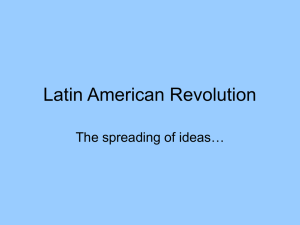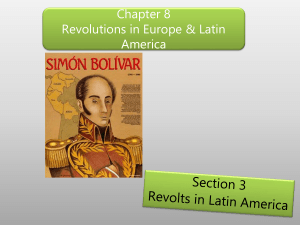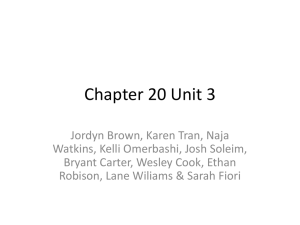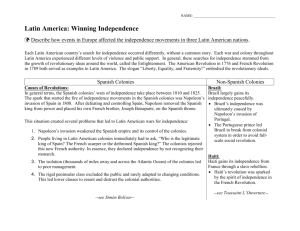Latin American Revolutions
advertisement
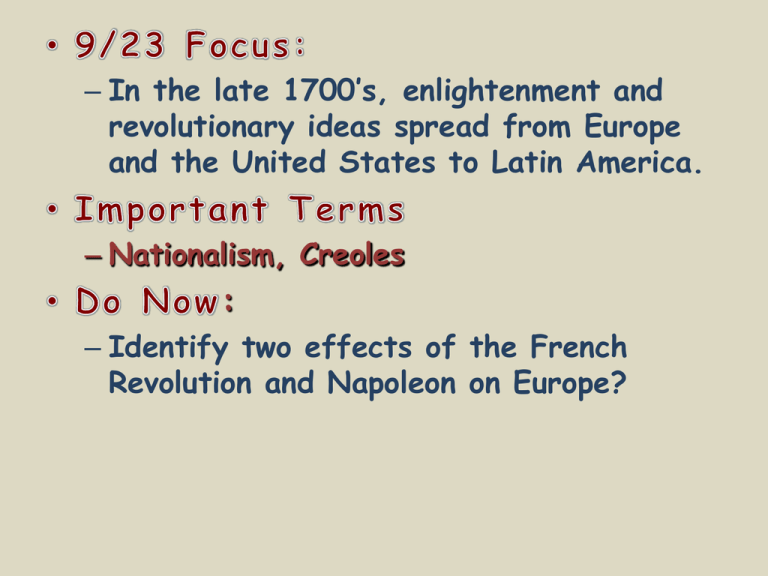
– In the late 1700’s, enlightenment and revolutionary ideas spread from Europe and the United States to Latin America. – Nationalism, Creoles : – Identify two effects of the French Revolution and Napoleon on Europe? • European nations had established colonies in Latin America • Colonies began to rebel in the early 1800’s Toussaint L’Ouverture Enlightenment Ideas Haiti Success of American and French Revolutions Independence movements In Latin America Mexico Miguel Hidalgo South America Nationalism Simon Bolivar Jose de San Martin • Educated Creoles read works of Enlightenment writers – Locke, Voltaire, Montesquieu, Rousseau • Success of American Revolution showed foreign rule could be overthrown • Inspired by ideas of the French Revolution • Nationalism? – Feeling of pride or devotion to one's nation • Nationalism often develops when a group is under control of foreign nation • French colony became the first Latin American colony to rebel • Had large sugar plantations worked by African slaves • Mulattoes had few rights • lead a successful revolt against French control of Haiti – Self educated, former slave – familiar with enlightenment ideas – Capable military leader • Haitian slaves won their freedom in 1798 • Napoleon had sent French troops to retake Haiti – French attempts to retake Haiti failed – Toussaint was captured and sent back to France – Died in a prison in the Alps • Haiti becomes first independent Latin American nation – Jan 1804 – Became a republic in 1820 • Inspired other Latin American colonies to rebel • What role did Toussaint L’ Overture in encouraging revolutions in Latin America? – Latin Leaders such as Toussaint L’ Ouverture, Simon Bolivar, and Jose de San Martin led popular movements to overthrow European rule. – Liberation : – Which social class in the Spanish class system was most familiar with enlightenment ideas? “My friends and countrymen neither the king nor tributes exist for us any longer. We have borne this shameful tax, which only suits slaves, for three centuries as a sign of tyranny and servitude: [a] terrible stain which we shall know how to wash away with our efforts. The moment of our freedom has arrived, the hour of our liberty has struck; and if you recognized its great value, you will help me defend it from the ambitious grasp of the tyrants. • Mexican priest • Began a 11 year revolution against Spanish rule in Mexico in 1810 – Hidalgo defeated in 1811 – Jose Morelos and others continue the fight – Mexico gains independence in 1821 • Napoleon conquered Spain and made his brother King (1808) • Creoles in Latin American colonies refused to support non-Spanish ruler – Enlightenment idea? • Consent of the GovernedJohn Locke – Revolutions broke out in several Spanish colonies in Latin America (1810) • Educated creole • Inspired by enlightenment and American and French Revolutions • Led independence movements against Spanish rule in South America – Nicknamed the “liberator” • Led military campaign that won independence for: – Venezuela – Columbia – Ecuador – Peru – Bolivia • Joined forces with Bolivar • Defeated Spanish in Argentina and Chile • Bolivar was unsuccessful in creating a united Latin American state – Gran Columbia • Former Spanish colonies divided into separate independent states • Why did revolutionary leaders in Latin America feel that they were justified in rebelling against foreign rule?
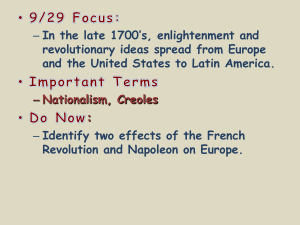
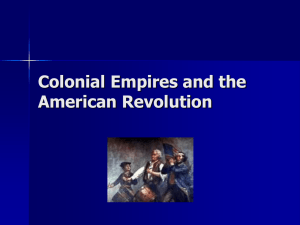
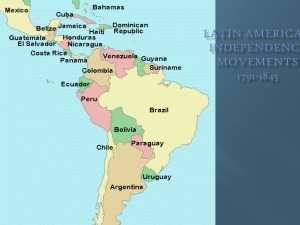
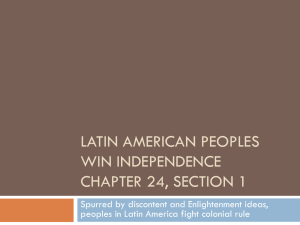
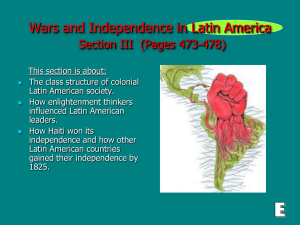
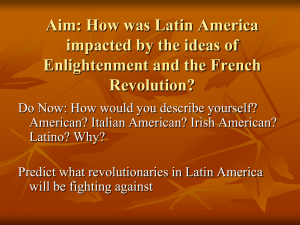
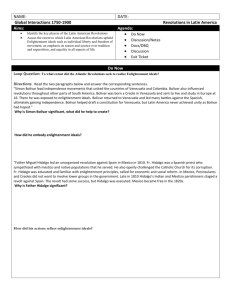
![Lesson 4.3 [WH] - MKHS](http://s3.studylib.net/store/data/008422552_1-b5d54a87b240306642b68067bfe9553e-300x300.png)
